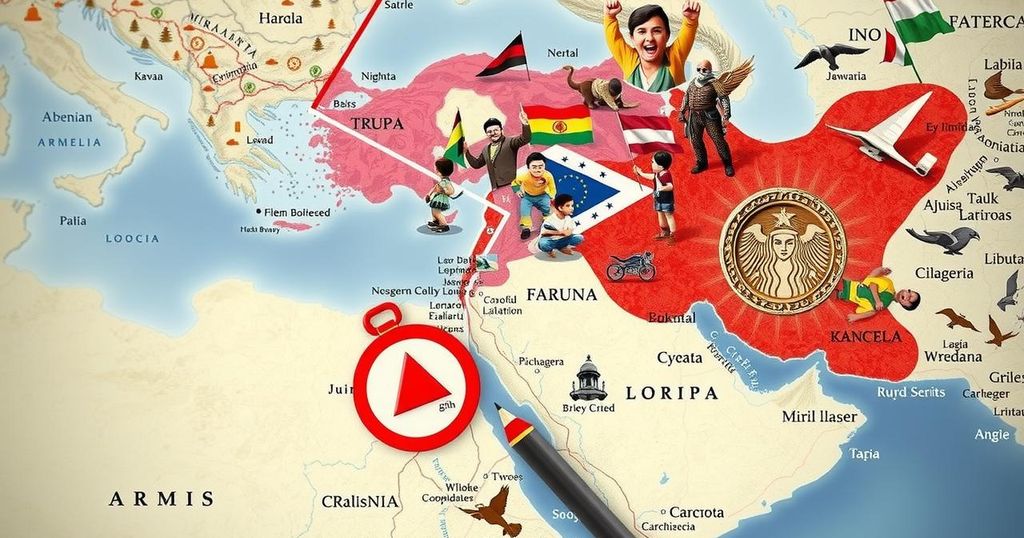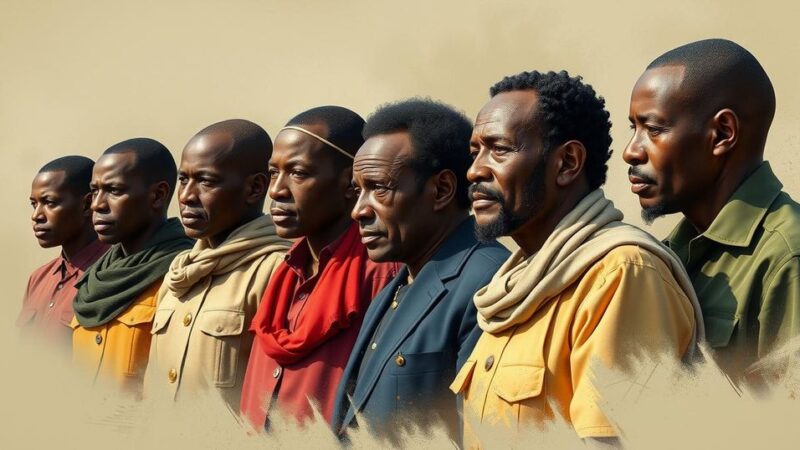Israel’s release of a new territorial map claiming rights over Palestine and neighboring regions has fueled international outrage, particularly from Jordan, Qatar, and the UAE. Officials from these nations have condemned the map as a violation of sovereignty and international law, demanding global action to counter Israel’s alleged expansionist ambitions.
A significant diplomatic conflict has arisen following the release of a new map by the Israeli Ministry of Foreign Affairs, which asserts historical claims over Palestine and extensive regions in Jordan, Lebanon, and Syria. Shared across the ministry’s Arabic-language social media accounts, the map portrays Israel as understood within biblical context and as the only democracy in the Middle East since 1948. This portrayal has provoked sharp reactions from various Arab nations, who perceive it as a violation of their sovereignty and an expansionist claim over occupied territories.
The serious objections to this map stem from various Arab nations, including Jordan, Qatar, and the United Arab Emirates (UAE), who have all expressed strong condemnation. Accusations align the map with Israel’s broader ambitions to expand its territory, thus igniting further regional tensions. Officials from these countries have called upon the international community to act against what they perceive as Israel’s attempts to exert further control over Palestinian and neighboring lands. The situation has exacerbated already existing grievances among Palestinians and has drawn stark responses from both the Palestinian administration and Hamas, amplifying calls to halt Israel’s expansionist policies.
Jordan’s Ministry of Foreign Affairs criticized the map as “accusations and confusion” that deter the establishment of a Palestinian state, thereby asserting the necessity for justice and sovereignty for Palestinians. The Ministry emphasized a strong disapproval of any representations that seek to establish a historical claim over displaced land. Qatar has similarly labeled the new map a “blatant violation” of international norms and urged concerted efforts from the global community to counter Israel’s territorial ambitions. Meanwhile, the UAE’s Government condemned the mapping as a direct violation of international law, emphasizing their commitment to peace and stability in the region.
The recent development regarding Israel’s newly proposed territorial map encapsulates a significant historical and political discourse surrounding territorial claims in the Middle East. Israel’s assertions of historical rights over lands also extend to areas recognized as Palestinian territories, igniting a cascade of diplomatic protests from Arab nations. The backdrop of this situation involves a longstanding conflict over land since the establishment of Israel in 1948 and the continuous struggle for Palestinian statehood. The claims represented by the map are seen as part of larger Israeli expansionist policies that many Arab nations strongly oppose, invoking calls for international intervention and support for Palestinian rights.
In conclusion, Israel’s announcement of a new map depicting expansive territorial claims has ignited substantial diplomatic backlash from various Arab nations, particularly Jordan, Qatar, and the UAE. The contention centers around perceived violations of sovereignty and international law, with unified calls for global intervention against Israel’s territorial expansion. The situation highlights the ongoing complexities within Middle Eastern politics, especially concerning Palestinian rights and statehood, which remain contentious points in regional diplomacy.
Original Source: www.india.com







